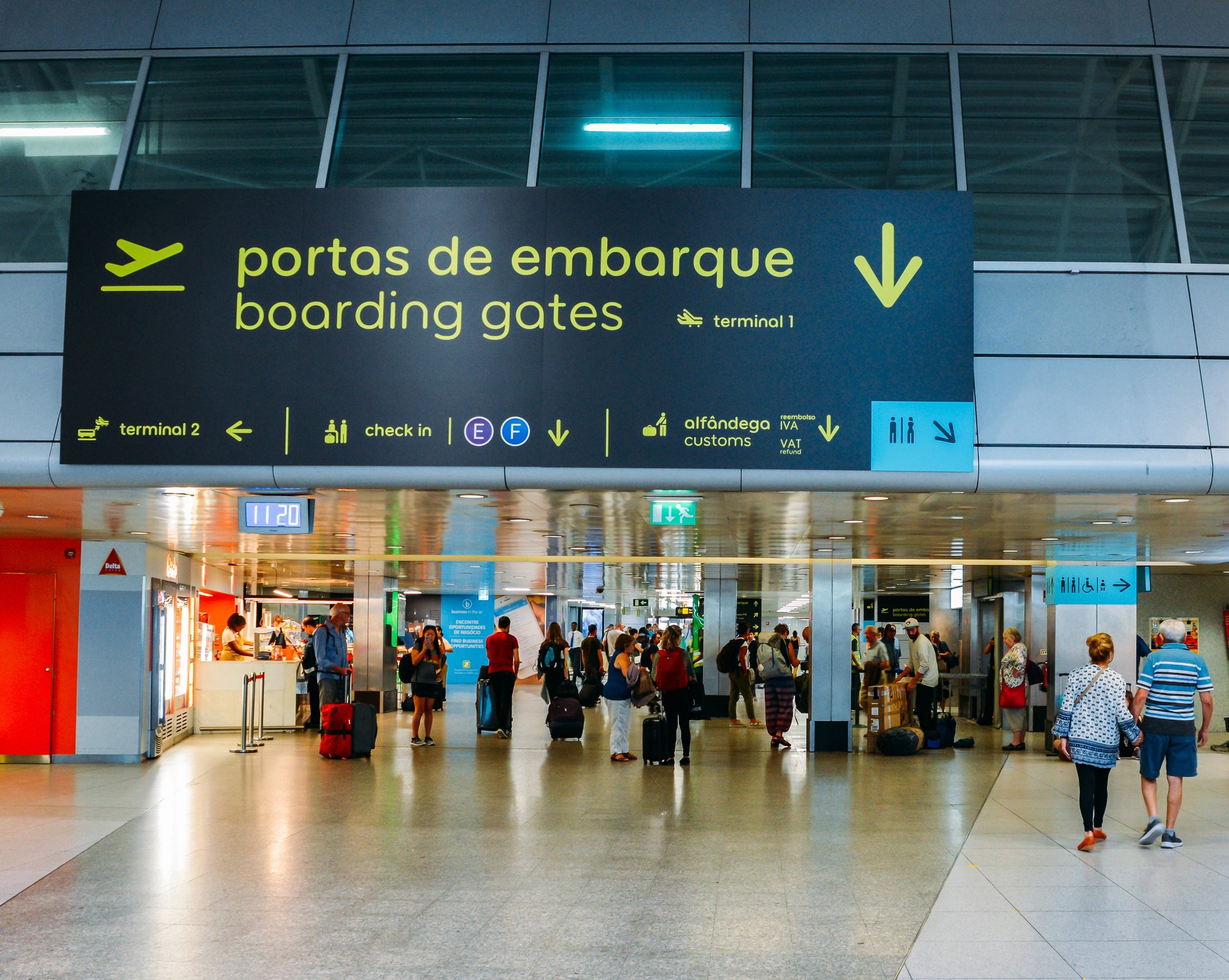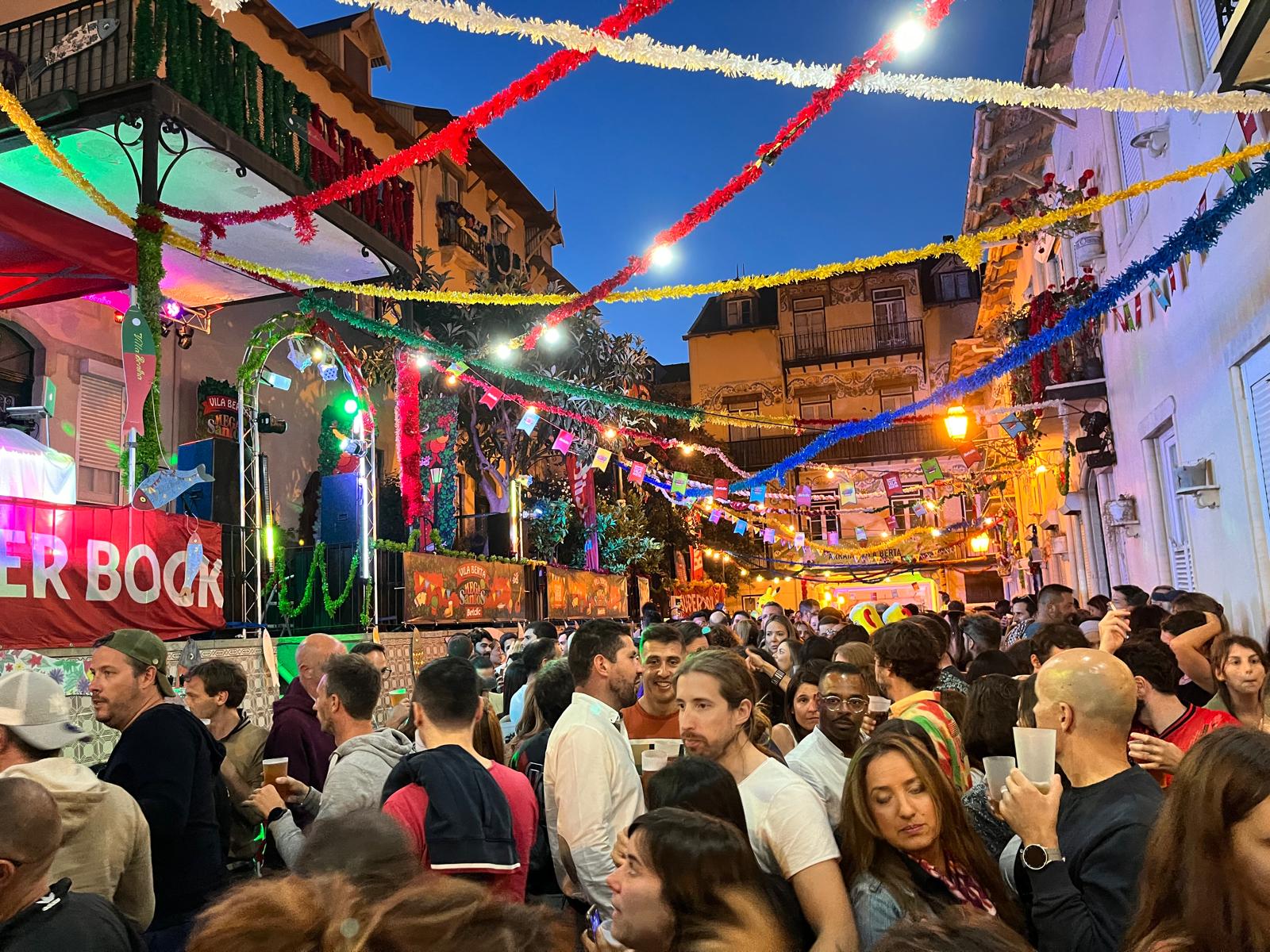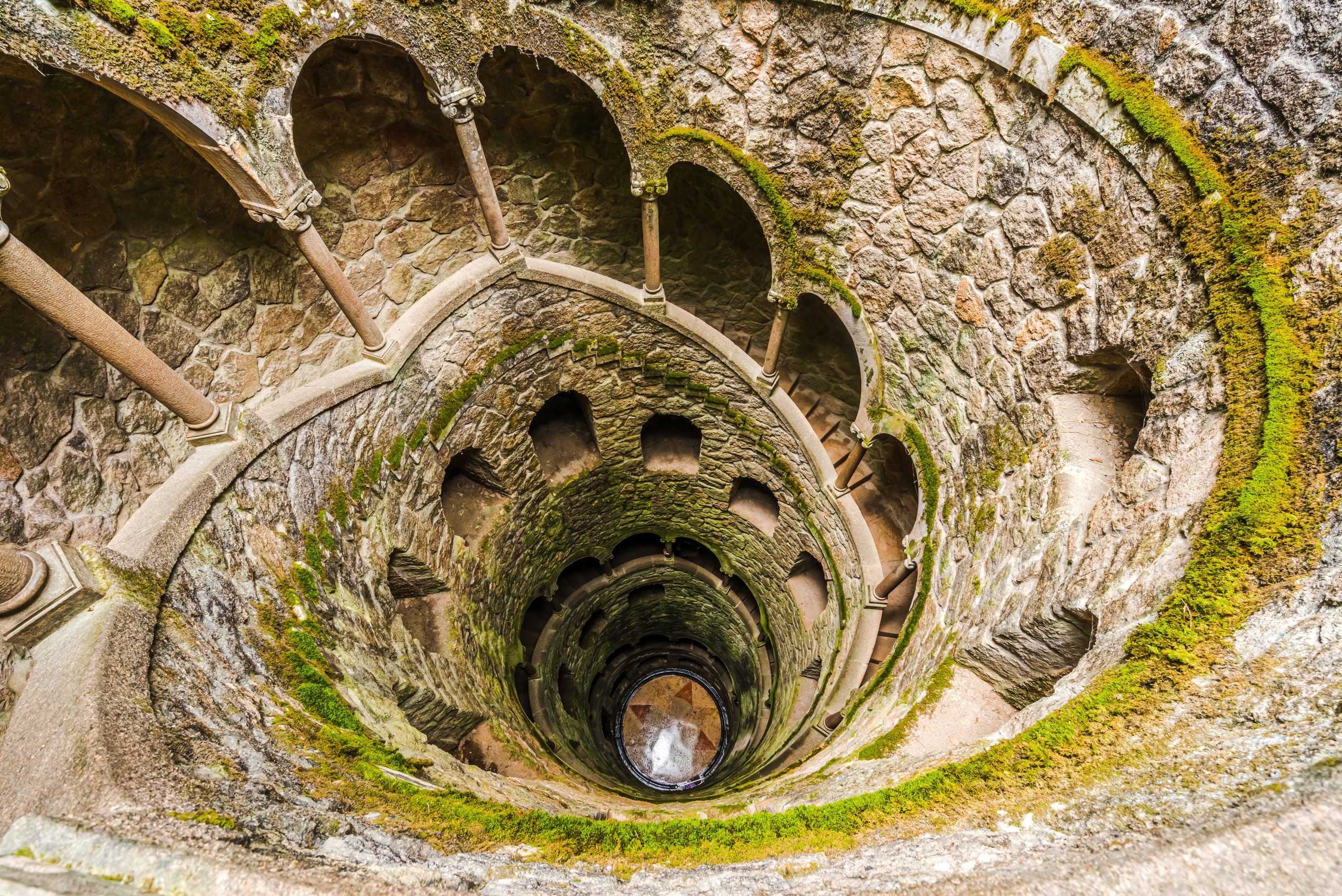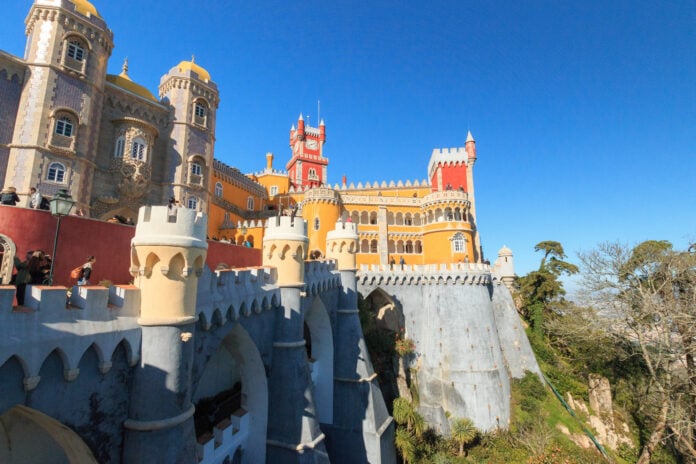Summer in Portugal is not what it used to be. Since tourism exploded post-pandemic, the crowds in Lisbon, Porto, and the Algarve have gotten much bigger, summers seem to be getting hotter each year, and the fire risk continues to grow. As someone who has lived here for the past five summers, I’ve noticed some consistent patterns over the last few years and becoming aware of these trends can help people better plan for a summer trip to Portugal.
The good news? With a few smart adjustments to your travel plans, you can avoid the biggest frustrations and enjoy a much more comfortable trip. Here are my top tips for navigating a summer visit to Portugal.
1. Make Sure Your Accommodation Has Air Conditioning (Or at Least a Fan)
At this point, it’s simply too hot to gamble on surviving a Portuguese summer without air conditioning. While some accommodations in Lisbon, Porto, and along the coast offer A/C or a cool breeze coming off the ocean, many traditional apartments do not. Trust me, due to the lack of insulation, when it is over 23° C (73° F) in your accommodation at night, it becomes very difficult to sleep – fan or no fan. You can open a window, but what if one of Portugal’s annoying sounds keep you awake? If your booking doesn’t mention air conditioning, confirm it with the host or hotel before you lock in your reservation.
If there’s no A/C, insist on having a fan ready for your arrival. Don’t assume one will magically appear. Portugal is not a country where every home keeps extra fans in the closet. If you arrive without one, you’ll find them in larger retail chains such as Worten, Leroy Merlin, or Continente in Colombo Shopping Centre. Check out our guide to finding everyday items in Lisbon for more help.
Pro tip: Request a room or apartment on the lowest possible floor. Heat rises, and in Portugal’s many older buildings, elevators can be slow, unreliable, or entirely absent.

2. Avoid Flights on Friday to Sunday
Weekend flights in the summer are a gamble this year, with repeated airport strikes from Friday to Sunday affecting multiple weekends. Cancellations and delays have been common and has left travelers scrambling for alternatives.
The safest days to fly are Tuesday through Thursday. Monday is your next-best option. A practical plan: fly in on a Thursday, enjoy a long weekend, and fly out Monday or Tuesday to avoid the chaos.

3. Be Aware of Portuguese Summer Holidays
Local holidays can make or break your travel plans, especially when they come with higher prices, closed attractions, or transit strikes.
For 2026, here’s what to watch out for:
June 4 – Portugal Day (national)
June 10 – Camões Day (national)
June 13 – St. Anthony’s Day (Lisbon only)
June 24 – St. John’s Day (Porto only)
August 15 – Assumption Day (national)
If you’re in Lisbon during the second week of June, expect higher prices, lack of housing availability, and the possibility of a metro strike on the night of June 12. If you want to join the Santo António festivities that night, stay in or near Alfama so you can walk back, as getting transport home will be nearly impossible.
In August, particularly around August 15, expect many museums (including the palaces in Sintra) to close. The second week of August is also one of the most common times for businesses to shut for staff holidays.

4. Be Aware of the Fire Risk in Rural Areas
Portugal’s wildfire season peaks in July and August, particularly in the central and northern regions. Fires can quickly lead to road closures, power cuts, and evacuations. The same risks apply in parts of Madeira and the Azores.
To minimize any disruptions, base yourself further south (Lisbon, the Algarve, or the Silver Coast) or in cities not fa the water like Porto. Avoid booking isolated rural stays during the high-risk period unless you have a reliable evacuation plan.

5. Stay Hydrated (and Ask for Tap Water in Restaurants)
The summer sun is relentless, and it’s easy to underestimate how much water you need. In restaurants, you can politely request tap water with: um copo com água, por favor.
By law, restaurants should provide tap water for free, though some may default to selling bottled water unless you ask. Carry a refillable water bottle and top it up at public fountains or your accommodation before heading out. Note that you will not receive ice with your water. The word for ice is gelo (je-loo). You can ask, but it’s not guaranteed that you will get it for free.
6. Start Your Day Early
Beat both the heat and the tour groups by starting your day early. In Lisbon, you can enjoy the Monument of Discoveries, Torre de Belém, or the city’s panoramic miradouros (viewpoints) in blissful quiet before the sun starts to beat down.
If you’re planning a trip to Cascais, note that the first direct trains from Cais do Sodré start at 8:15 am. If you want to be there before the crowds, grab a taxi or rideshare. Another early-morning option is to take the ferry from Cais do Sodré to Cacilhas, then connect to Costa da Caparica beaches before the midday rush.
7. Be Strategic about Your Trip to Sintra
Sintra is magical, but in summer, it’s also one of the most congested destinations in Portugal. We previously released a DIY Guide to Sintra, which you can review for more details. To make the most of your day:
Take an early train or taxi from Lisbon.
Book Pena Palace and Quinta da Regaleira tickets online at least one week in advance.
Visit Pena first (it gets the most crowded), then work your way downhill (either on foot or by hiring a tuk-tuk) to Quinta da Regaleira.
With the right timing, you can enjoy Sintra’s charms without feeling like you’re trapped in a line at a theme park.

Final Thoughts
Portugal in summer is consistently sunny and beautiful and full of lively festivals. But it’s also hotter, busier, and more unpredictable than it was just a few years ago. With a bit of planning, choosing the right travel days, making sure that you have air conditioning, waking up early, and being aware of Portuguese holidays, you can experience the charms of the Portuguese summer and discover why so many people fall in love with this country.
Allowing yourself the chance to sip vinho verde in a shaded praça or wander along a quiet morning beach is always the best kind of Portuguese souvenir.


